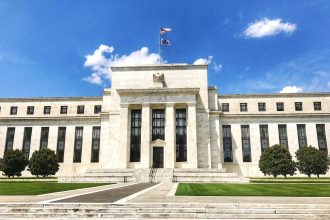Most people today take the internet for granted. Want to find an obscure report published years ago, or the best place to stay in Timbuktu? No problem.
We forget that it wasn’t always that simple. In the early 1990s, if computers wanted to talk to each other, they often had to jump through different networking protocols. Most of the names have been lost to history: there was Novell NetWare, Systems Network Architecture (SNA) from IBM, even Apple had its own protocol – AppleTalk. In effect you had all these different languages, and each one was basically an island with its own operating system or form of government. If you were in the right networking island everything was golden. But the minute you tried to swim to another island and make AppleTalk have a conversation with IBM, you needed to find a bridge to translate from one language to another.
TCP/IP, an open-source protocol, was just another island in the archipelago at this point, but it eventually won the battle for dominance. Suddenly, with the advent of HTTPS, the networking world flattened around one protocol, making it interoperable and efficient and eliminating the need for gateways and translation. Information could flow freely within a cohesive global network, allowing the internet to expand rapidly and become a powerful driver of innovation.
The rest, as they say, is history.
Today, we stand on the edge of a similar pivotal moment. As we look around the world, the open-source operating system Linux is rapidly outpacing every other operating system. Developed in 1991 by Linus Torvalds, Linux is available to anyone to install and use for commercial purposes, for free. It is rapidly becoming, to banks’ operating environments, what HTTPS was to the internet.
In fact, Linux is the foundation for most public cloud providers. As you can see from the chart below, the number of Linux-based operating systems has grown dramatically in recent years and is projected to continue.
The challenge for banks that have been around for more than a decade is that more often than not their operating environment comprises layers upon layers of different operating systems, like IBM’s System/360 and AS/400, Microsoft’s Windows Server, Tandem, and Unisys. When you get to the bottom layer, it’s a bit like the bag of chips at the back of the vending machine – it’s long past the sell-by date.
Added to that complexity is the fact that Linux is not always Linux. There are different versions of the system, and each cloud provider has customized it to create its own specialized version with different features and functionality.
Thus in many ways, banks today are like the network users of the early 1990s. Many of the applications they use are marooned on their own islands. This leaves them with no choice but to put in an enormous amount of overhead to help their applications share information with each other. They not only have to keep all these different environments running, but also need a translation capability akin to that of the United Nations to enable them to communicate.
A cloud-first model, one in which a bank would operate on a common operating system across all the islands, would be a game changer in terms of productivity, efficiency, innovation and speed to market, to name a few. Is this possible? Yes. It’s what enables many startup banks to operate so fast. They have brought the internet mindset to banking, collapsing the complexity and allowing them to operate at internet speed.
Linux holds the potential to be the internet of operating systems – the one operating system that everything works on. But to get there will require a drive towards standardization, like we saw with TCP/IP when the internet was new. Such a move would dramatically benefit banks and cloud providers in the long run.
Imagine a future where banks have an operating environment that is based on Linux and a software environment based on open-source capabilities, where developers are using generative AI to develop code. Think of how much more productive banks’ technology and operations teams could be. If you can radically simplify the tech stack you can transform the way that banks operate.
Two forces driving standardization
Two trends are emerging which might be the equivalent of the browser for the operating system. The first, oddly enough, is regulatory requirements — the combination of the Digital Operational Resilience Act (DORA) in Europe and the EU requirements around the location of data.
DORA mandates that for critical applications you can’t have a single point of failure, thus forcing banks to have multiple physical infrastructures for critical applications. Brought to its logical conclusion, this means that critical applications will have to run on two islands – that will only be possible if they are speaking the same language. This will, over time, drive banks towards a more common operating system.
The second factor that is changing the game is generative AI, with its ability to act as a Rosetta Stone of sorts, decoding ancient programming languages into their original specifications and then to translate those specifications into modern languages. With generative AI we are entering a new phase of both banking and technology, one where we will see the collapse to more of a common operating environment that allows banks to operate on a faster and simpler level.
What happens next could be a turning point for cloud and for banks, and for everyone else using the cloud. The cloud has been with us for many years, and a large number of banks are already enjoying significant benefits. But as in the early days of the internet, it’s fair to say: “You ain’t seen nothing yet!”
Read the full article here
















